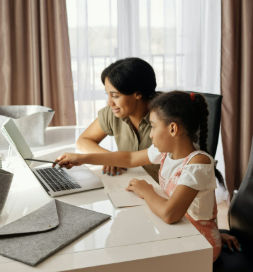Virtual classrooms open up exciting opportunities for learning from anywhere, but they also bring new responsibilities—especially when it comes to privacy. Respecting everyone’s privacy helps create a safe and comfortable learning environment where students and teachers can focus on learning and growing together.
Here are some simple, friendly tips on how to respect privacy in virtual classrooms:
1. Keep Personal Information Private
Avoid sharing personal details like your home address, phone number, or passwords during virtual classes. If teachers or students need to share sensitive information, do so through secure and private channels.
2. Use Secure Platforms
Choose virtual classroom tools that offer strong security features like password protection, waiting rooms, and encryption. These features help protect meetings from unwanted guests and keep information safe.
3. Be Mindful When Recording
If recording a virtual class, always ask for permission from everyone involved before you start. Let students and parents know how the recordings will be used and stored, and make sure to follow school or organization policies.
4. Respect Background Privacy
Encourage everyone to be mindful of what’s visible on their screens or in their backgrounds. Using virtual backgrounds or blurring the background can help protect personal spaces.
5. Protect Shared Materials
When sharing documents or links, make sure they don’t contain personal or sensitive information. Use shared drives or platforms that have controlled access to keep materials safe.
6. Set Clear Privacy Guidelines
Teachers should establish and communicate clear rules about privacy at the start of the course. This helps everyone understand expectations and behave respectfully online.
7. Avoid Sharing Screens Without Consent
Always ask before sharing someone else’s screen or work during the class. Respecting this prevents accidental sharing of private information.
8. Educate About Digital Citizenship
Teaching students about online safety and respectful behavior helps them understand the importance of privacy—not just in virtual classrooms but everywhere online.
Respecting privacy in virtual classrooms helps build trust and makes learning a positive experience for everyone. By following these friendly tips, teachers and students can create a safe and respectful online space where everyone feels valued.





